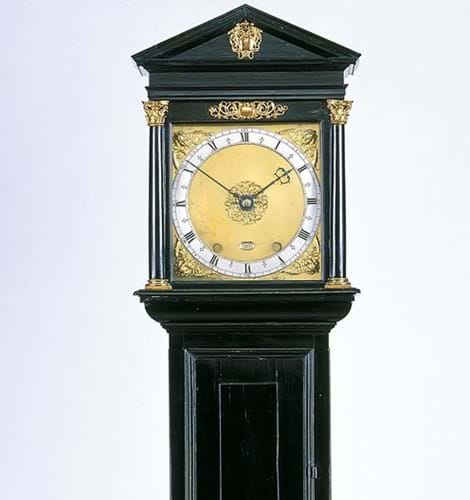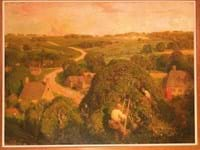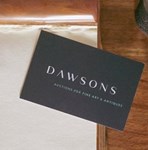
The earliest surviving purpose-made longcase clock in an architectural ebony-veneered case was the subject of a recent private sale.
The application to export was made by Winchester dealership Carter Marsh. That process has been put on hold in the hope that a buyer in the UK can be found. Including fees and VAT, the sum to be raised is £3.009m.
The price would make this among the most expensive English Golden Age clocks ever sold – only a small number of deluxe grande sonnerie clocks by Thomas Tompion have made more.
The Reviewing Committee on the Export of Works of Art and Objects of Cultural Interest (RCEWA) has argued that the clock’s departure from the UK would be a “misfortune because it is of outstanding significance for the study of English clockmaking in the 17th century”.
Jonathan Carter, director at Carter Marsh, said: “This is a wonderful, fantastic and important clock. It is the first longcase clock that was actually conceived and built as a longcase clock rather than later adapted.”
Dated to either 1660 or 1661, it was designed and made in London by Ahasuerus Fromanteel (1607-93), the first maker of pendulum clocks in Britain, who gained the notice and patronage of Oliver Cromwell during the Interregnum.
Despite restoration, the case with its columns, pediment and decorative gilded mounts is largely original. The design (one that proved popular later in the 1660s), has links to John Webb ((1611-72), the architect who was in large part responsible for the introduction of classical vocabulary to British building design.
The clock, last sold in 1998, is believed to be from the remarkable John C Taylor collection, currently being sold through Carter Marsh.
Its early provenance is unclear but it may have been acquired from Fromanteel by Henry Howard, later 24th Earl of Arundel and 6th Duke of Norfolk.
Arts minister Lord Parkinson of Whitley Bay said: “The invention of the pendulum clock, the world’s most precise timekeeper, was a revelation in the 17th century and Fromanteel was the first maker to bring this ground-breaking technology to England. This rare and fascinating clock is an important piece of our national heritage and it would be a great shame should it be sold abroad.”
RCEWA committee member Pippa Shirley said: “This object is the ancestor of timepieces that have been a beloved part of British households since the late 17th century. This on its own creates a powerful argument for keeping the clock in this country as part of our national heritage, but this particular example is very important for other reasons too. It was made by one of the pre-eminent makers of his time.
“The elegant, restrained, architectural appearance of the case with its columns, pediment and beautiful decorative gilded mounts is also important, with possible links to John Webb, the architect who was in large part responsible for the introduction of elements of classical vocabulary to building design.
“There are also strong connections to an important historical family through Henry Howard, Earl of Arundel, which need to be further understood. The clock offers multiple avenues for further research and understanding of this highly important field and moment in our history, all of which would be better explored if it remains in this country, as we very much hope it will.”
The decision on the export licence application for the clock will be deferred until March 13, 2022. Should a UK buyer show an intention to purchase, a second deferral period will commence lasting a further four months.















